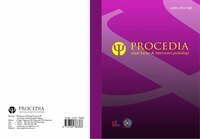Cognitive Behavior Therapy untuk mengurangi perilaku melukai diri pada kasus depresi
DOI:
https://doi.org/10.22219/procedia.v10i2.19223Keywords:
Adult cases , cognitive behavioral therapy , depression, self-injury behaviorAbstract
Depression is a mood disorder characterized by the absence of hope, prolonged sadness, excessive feelings of helplessness, inability to make decisions, inability to concentrate, loss of enthusiasm for life, feelings of tension and a desire to end life or hurt oneself. The purpose of this study was to see whether self-injury behavior in depression could be reduced after giving Cognitive Behavioral Therapy. The subject is twenty-three years old woman; suffer from depression and often self-harm. The assessments used were clinical interviews, observation, Beck Depression Inventory, graphic tests, Wechsler Adult Intelligence Scale, Thematic Apperception Test, and WHODAS. Frequency self -injury behavior subject was three times a week average. The intervention given is Cognitive Behavioral Therapy to reduce the frequency of self-injury by 10 sessions. The result shows that Cognitive Behavioral Therapy is effective in reducing self-injury behavior and can reduce negative thinking in people with depression.
Downloads
References
American Psychiatric Association. (2013). Diagnostic and statistical manual of mental disorders (5th ed.). American Psychiatric Publishing. https://doi.org/10.1176/appi.books.9780890425596
Asarnow, J. R., Porta, G., Spirito, A., Emslie, G., Clarke, G., Wagner, K. D., Vitiello, B., Keller, M., Birmaher, B., McCracken, J., Mayes, T., Berk, M., & Brent, D. A. (2011). Suicide attempts and nonsuicidal self-injury in the treatment of resistant depression in adolescents: findings from the TORDIA study. Journal of the American Academy of Child and Adolescent Psychiatry, 50(8), 772–781. https://doi.org/10.1016/j.jaac.2011.04.003
Belvederi M. M., Caruso, R., Ounalli, H., Zerbinati, L., Berretti, E., Costa, S., Recla, E., Folesani, F., Kissane, D., Nanni, M. G., & Grassi, L. (2020). The relationship between demoralization and depressive symptoms among patients from the general hospital: network and exploratory graph analysis. Journal of affective disorders, 276, 137–146. https://doi.org/10.1016/j.jad.2020.06.074
Donker, T., Griffiths, K. M., Cuijpers, P., & Christensen, H. (2009). Psychoeducation for depression, anxiety and psychological distress: a meta-analysis. BMC medicine, 7, 79. https://doi.org/10.1186/1741-7015-7-79
Dunlop, K., Hanlon, C. A., & Downar, J. (2017). Noninvasive brain stimulation treatments for addiction and major depression. Annals of the New York Academy of Sciences, 1394(1), 31–54. https://doi.org/10.1111/nyas.12985
Farmani, F., Taghavi, H., Fatemi, A., & Safavi, S. (2015). The efficacy of group reality therapy on reducing stress, anxiety and depression in patients with Multiple Sclerosis (MS). International Journal of Applied Behavioral Sciences, 2(4), 33-38. https://doi.org/10.22037/ijabs.v2i4.11421
Freshman, B., & Rubino, L. (2002). Emotional intelligence: a core competency for health care administrators. The health care manager, 20(4), 1–9. https://doi.org/10.1097/00126450-200206000-00002
Guerdjikova, A., Gwizdowski, I., McElroy, S., McCullumsmith, C., & Suppes, P. (2014). Treating nonsuicidal self-injury. Current Treatment Options in Psychiatry, 1(4), 325-334. https://doi.org/10.1007/s40501-014-0028-z
Kaess, M., Koenig, J., Bauer, S., Moessner, M., Fischer-Waldschmidt, G., Mattern, M., Herpertz, S. C., Resch, F., Brown, R., In-Albon, T., Koelch, M., Plener, P. L., Schmahl, C., Edinger, A., & STAR Consortium (2019). vfilleject Self-injury: Treatment, Assessment, Recovery (STAR): online intervention for adolescent non-suicidal self-injury - study protocol for a randomized controlled trial. Trials, 20(1), 425. https://doi.org/10.1186/s13063-019-3501-6
Kementerian Kesehatan Republik Indonesia. (2019). Situasi Kesehatan Jiwa Di Indonesia. In InfoDATIN (p. 12
Knapp, P., & Beck, A. T. (2008). Cognitive therapy: Foundations, conceptual models, applications and research. Revista Brasileira de Psiquiatria, 30(Suppl2), S54–S64. https://doi.org/10.1590/S1516-44462008000600002
Labelle, R., Pouliot, L., & Janelle, A. (2015). A systematic review and meta-analysis of cognitive behavioural treatments for suicidal and self-harm behaviours in adolescents. Canadian Psychology, 56, 368-378. https://doi.org/10.1037/A0039159
Mauritz, M., & Van Meijel, B. (2009). Loss and grief in patients with schizophrenia: on living in another world. Archives of psychiatric nursing, 23(3), 251–260. https://doi.org/10.1016/j.apnu.2008.06.006
Nelson, Jones, R. (2011). Teori dan praktik konseling dan terapi edisi ke 4. Yogyakarta: Pustaka Pelajar
Nevid, J. S., Rathus, S. A., Greene, B. (2014). Psikologi abnormal di dunia yang terus berubah. Jakarta: Erlangga
Jeanine & LCSW-C, Pat. (2008). Understanding Parental Grief as a Response to Mental Illness: Implications for Practice. Journal of Family Social Work. 11. 323-338. https://doi.org/10.1080/10522150802292616
Putranto, Kasandra. (2016). Aplikasi Cognitive Behavior dan Behavior Activation dalam Intervensi Klinis. Jakarta: Grafindo Books Media
Sadock, B. J., Sadock, V. A., & Ruiz, P.(2008) Kaplan & Sadock's concise textbook of clinical psychiatry
Tarrier, N., Taylor, K., & Gooding, P. (2008). Cognitive-behavioral interventions to reduce suicide behavior: a systematic review and meta-analysis. Behavior modification, 32(1), 77–108. https://doi.org/10.1177/0145445507304728
Tyas, T. W. (2014). Penerapan self management untuk mengatasi problem akademik mahasiswa. Procedia: Studi Kasus Dan Intervensi Psikologi, 2(2), 44-48. https://doi.org/10.22219/procedia.v2i2.16288
Downloads
Published
How to Cite
Issue
Section
License
Copyright (c) 2022 Esti Paramitayani Mitha

This work is licensed under a Creative Commons Attribution-NonCommercial 4.0 International License.






